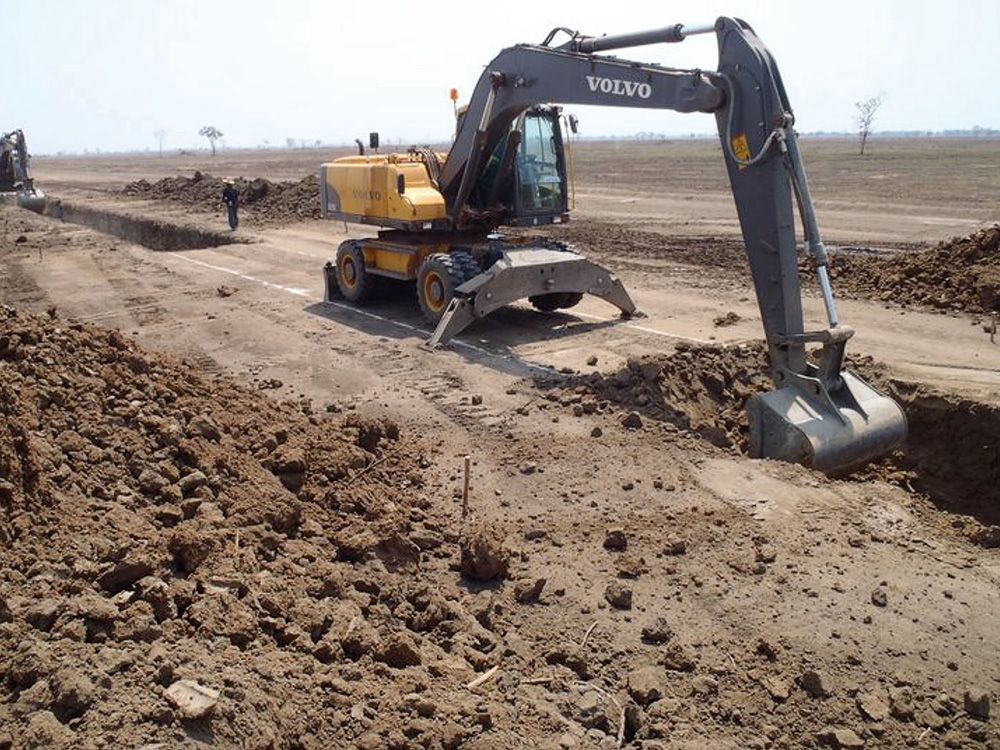Location
The international journal Rural 21 has dedicated more than 40 years to all topics surrounding rural development. Its ambition is to further those strategies and policies that strengthen rural areas of developing and newly industrialising countries and encourage their implementation. The journal addresses the complete range of relevant themes – from agriculture and fisheries via capacity building and education through to health and social security, energy supply and trade. Center-stage is always devoted to inquiring into how measures and strategies can contribute to global food security and to reducing poverty.
Rural 21 desires to further the dialogue between science and politics, the private sector, civil society and practitioners. Two platforms are designed for this purpose: Rural 21 in print is published four times a year, each issue highlighting a specific focus of rural development – this print edition is read in more than 150 countries. In parallel, Rural 21 online keeps the rural development community up to date on news and events, scientific findings and other print and online publications.
Rural 21 is published by DLG-Verlag GmbH in Frankfurt/Germany. Financial partners are BMZ (German Federal Ministry for Economic Cooperation and Development), GIZ (Deutsche Gesellschaft für Internationale Zusammenarbeit), DLG (German Agricultural Society – Deutsche Landwirtschaft-Gesellschaft), SDC (Swiss Agency for Development and Cooperation) and Helvetas Swiss Intercooperation.
The first issue of Rural 21 dates back to 1968. From 1974 to 2007, the journal was published in three languages entitled "entwicklung & ländlicher raum" / "agriculture & rural development" / "agriculture & développement rural". In 2008, the journal was relaunched as "Rural 21".
Members:
Resources
Displaying 46 - 50 of 319Monitoring progress on agriculture and rural development
The Sustainable Development Goals (SDGs) will amount to little unless backed by reliable indicators. Only with good metrics can the agenda be implemented and progress measured. Just like the SDGs themselves, the indicators are still in the discussion phase, with the Sustainable Development Solutions Network (SDSN) one of the many players in this process. They outline their recommendations in the following article, using rural development as an example to describe them.
Climate change, environment and migration in the Sahel
In the debate on climate change, it is frequently argued that the number of “climate refugees” is going to grow world-wide. So far, however, only little evidence has been provided of links between climate change, environmental changes and migration. The transdisciplinary research project “micle”– migration, climate & environment – has examined this link in selected areas of the Sahel zone.
Mindsets for sustainability – let’s start with feed!
Nowadays it is hard to imagine European livestock production without soya-based feed. But this trend has had a massive impact on rural areas in the global South – the bulk of the soya fed to livestock in Europe is imported from Argentina and Brazil. That is not sustainable, says WWF’s Birgit Wilhelm, who advocates a change in mindset.
Pasture management in Central Asia – regional learning for reform
The former Soviet Central Asian republics have undergone de-intensification of their livestock sectors, resulting in an increased reliance on natural pastures. Property rights systems are key to the sustainable management of this resource. However, as the authors demonstrate, it is not easy to implement the respective reform processes.
Animal husbandry in cities – using potentials, reducing risks
Not only rabbits and guinea-pigs but sheep, goats, cattle and pigs also play a crucial role in the food and income situation of countless city-dwellers world-wide. However, when people and animals live in such close proximity, health risks are inevitable. But instead of banning urban animal husbandry, as was, for example, considered in the course of the swine influenza epidemic, framework conditions ought to be created that enable people to make use of this business branch to earn a profit without running risks.





